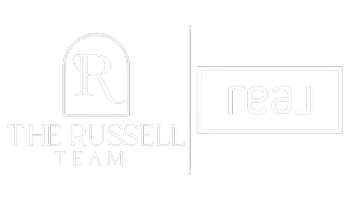
The Truth About Credit Scores and Buying a Home
Your credit score plays a big role in the homebuying process. It’s one of the key factors lenders look at to determine which loan options you qualify for and what your terms might be. But there’s a myth about credit scores that may be holding some buyers back.The Myth: You Need To Have Perfect CreditAccording to Fannie Mae, only 32% of potential homebuyers have a good idea of what credit score lenders actually require. That means two-thirds of buyers don’t actually know what lenders are looking for – and most overestimate the minimum credit score needed.The Reality: Perfect Isn’t NecessaryBut the truth is, you don’t need perfect credit to become a homeowner. To see the average score, by loan type, for recent homebuyers check out the graph below:There is no set cut-off score across the board. As FICO explains:“While many lenders use credit scores like FICO Scores to help them make lending decisions, each lender has its own strategy, including the level of risk it finds acceptable. There is no single “cutoff score” used by all lenders, and there are many additional factors that lenders may use . . .”So, even if your credit score isn’t as high as you’d like, you may still be able to get a home loan. Just know that, even though you don’t need perfect credit to buy a home, your score can have an impact on your loan options and the terms you’re able to get.Work with a trusted lender who can walk you through what you’d qualify for.Simple Tips To Improve Your Credit ScoreIf you want to open up your options a bit more after talking to a lender, here are a few tips from Experian and Freddie Mac that can help give your score a boost:1. Pay Your Bills on TimeThis includes everything from credit cards to utilities and other monthly payments. A track record of on-time payments shows lenders you’re responsible and reliable.2. Pay Down Outstanding DebtReducing your overall debt not only improves your credit utilization ratio (how much credit you’re using compared to your total limit) but also makes you a lower-risk borrower in the eyes of lenders. That makes them more likely to approve a loan with better terms.3. Hold Off on Applying for New CreditWhile opening new credit accounts might seem like a quick way to boost your score, too many applications in a short period can have the opposite effect. Focus on improving your existing accounts instead.Bottom LineYour credit score doesn’t have to be perfect to qualify for a home loan. The best way to know where you stand? Work with a trusted lender to explore your options.
![Buyers, Here's Your Guide to Make Your Homeownership Dream Alive in 2025 [PART 2],Ylopo (Enterprise)](https://img.chime.me/image/fs/chimeblog/20250127/16/w600_original_eb9cdf18-aa44-460b-a51c-29fb218c11e2-jpg.webp?format=1000w)
Buyers, Here's Your Guide to Make Your Homeownership Dream Alive in 2025 [PART 2]
Planning to buy a home in 2025? With only a few days left ‘til the new year, it may seem like an extremely distant and daunting goal. But the good news is that you still have the whole year ahead of you, which means you can take it step by step. Getting started today is already a huge feat, so here's a comprehensive guide that you can use to navigate through this journey toward your homeownership dreams. Building up your savings is a fundamental part of your home-buying journey. Whether you're purchasing next year or in the next few years, you’ll need funds for things like down payment, closing costs, maintenance costs, and even moving expenses. Once you’re done evaluating your finances, create a plan to save up for what you need. Here are some things you can do:Create a dedicated savings account and automate savings.Having a separate savings account can help you stay organized and focused. You can track your progress and won’t be tempted to use your funds for other expenses. Consider setting up a high-yield savings account or a money market account to earn interest on your savings. Set a down payment goal.Before you can take out a mortgage, you’ll have to put down some of the cost upfront since a bank won’t loan you the full purchase price. This is why the down payment is often the biggest hurdle for many first-time home buyers. Your down will be a percentage of the total purchase price, and it’s typically paid in cash at the closing of the transaction. There are multiple factors to consider when deciding how much to save for a down payment, such as your price range for the home and the programs you qualify for.Consider ways to increase your income.You might want to look for opportunities to make more money that you can put directly into your house fund. It could be asking for a raise at your company, moving into a new role with a better income, or picking up part-time jobs, freelance opportunities, consulting jobs, or side gigs that align with your skills and interests. And if you happen to have some tax refund or bonus at work, use the money to boost your savings and reach your goals faster.Saving up for a house can be pretty intimidating, but it doesn’t mean sacrificing everything fun in your life. With a combination of strategy, discipline, and smart financial planning, it isn’t impossible to reach your savings goal that will help achieve your homeownership dreams. Homeownership comes with a lot of expected and unexpected expenses that many first-time home buyers may not fully anticipate. When setting a realistic monthly budget for a home, here are some things to include:Before the home purchase:Down paymentClosing fees and other legal costs. Which typically range from 2-5% of the property's purchase price. Closing costs usually include attorney fees, title fees, as well as inspection and appraisal fees.After the home purchase:Monthly mortgage payments, which is recommended to keep at or below 25% of your after-tax income to stay on solid financial ground.Home InsuranceProperty taxesHomeowners association fees, if applicableUtilitiesRegular maintenance, such as lawn/yard care and seasonal upkeepUnexpected repairs, such as broken appliances, damaged windows, etc. No matter how exciting, buying your first home is a complicated undertaking. Would you want to risk your hard-earned money and your sanity going through the process alone? Building a team of knowledgeable and reliable professionals can make all the difference. Here are some of the people you need in your corner to help you streamline the process and avoid unpleasant surprises down the road.Real estate agentWorking with a local and experienced real estate agent can make the home-buying process less daunting. They can provide valuable insights into the housing market, share information about your target neighborhoods, negotiate deals on your behalf, and guide you through the complex paperwork. Look for an agent who knows your preferred areas inside and out, understands your needs and unique circumstances, and has a solid track record of helping first-time buyers in your price range. Mortgage lenderConnecting with a trusted mortgage advisor will help you understand your financing options and give you a clear understanding of your buying power. Your lender will also help you track the best mortgage rate trends and explore tools to keep your mortgage payments manageable. A pre-approval letter from your lender also provides you with a clear estimate of how much you can borrow and shows that you're a serious buyer.Home inspectorHiring an inspector who will thoroughly inspect the property’s condition will make sure that you can protect yourself from hefty expenses caused by unseen major repairs. They can easily uncover any hidden issues related to structure, electrical, or plumbing. The inspection results can help you and your realtor negotiate with the seller to either cover the costs of repairs, lower the home’s purchase price, or simply walk away from the transaction if the home is found to have some serious structural problems.Other professionals that you may need in your team include: a financial advisor who will ensure you’re prepared for the financial responsibilities of homeownership, a home appraiser who will determine the value of the property for sale, and a real estate attorney who will review documents and agreements carefully for your peace of mind. Finally, remember that any significant milestone in your life requires time and patience, including your journey to homeownership. Remember to set realistic expectations while staying committed to your goals. Be prepared for the ups and downs of the process, especially if you're in a competitive market where bidding wars are common and your offer might get rejected. Avoid rushing into a decision and trust that the right property that fits your needs and financial capability will eventually come along.
![Buyers, Here's Your Guide to Make Your Homeownership Dream Alive in 2025 [PART 1],Ylopo (Enterprise)](https://img.chime.me/image/fs/chimeblog/20250127/16/w600_original_3c66338d-ea99-4239-b00e-bb1282d32e7b-jpg.webp?format=1000w)
Buyers, Here's Your Guide to Make Your Homeownership Dream Alive in 2025 [PART 1]
Planning to buy a home in 2025? With only a few days left ‘til the new year, it may seem like an extremely distant and daunting goal. But the good news is that you still have the whole year ahead of you, which means you can take it step by step. Getting started today is already a huge feat, so here's a comprehensive guide that you can use to navigate through this journey toward your homeownership dreams. Buying a home is one of the biggest and most significant financial decisions you will ever make. This is why it's critical to ensure that your finances are in order. Homeownership is already complex as it is, so you need to have a clear understanding of your current financial status before buying. Here are some things to consider:Assess your savings and see if you have an emergency fund in place.Start by evaluating your current finances, including your sources of income and savings. List down your after-tax income, cash savings, investments, and inheritances, making sure to leave out your retirement account. Ensure that you also have an emergency fund in place, which is recommended to be three to six months’ worth of living expenses to cover any unexpected costs. Track your spending habits.Tracking your expenses gives you a clearer picture of how you’re spending your money. Are you still paying for an unused gym membership? Are there any subscriptions you’re not getting your money’s worth? Have you been spending more on restaurant meals recently instead of cooking at home? When you closely monitor your fixed expenses as well as discretionary spending, you’ll be able to avoid impulse purchases and instead allocate the extra money towards your goal.Keep an eye on your credit score.If you still aren’t keeping an eye on your credit score, now is the time to start. Your credit score is one of the foundations of buying a home as it can make or break your ability to get a mortgage. The stronger it is, the easier it will be for you to secure the best mortgage rates. Conventional loans often have a minimum credit score requirement of 620 or higher. On the other hand, programs like FHA loans may allow for lower scores. To prepare for a successful home purchase, it’s essential to boost your credit score in advance. Here are some steps you can take to strengthen your credit:Review your credit report from all three major bureaus (Experian, Equifax, and TransUnion) to ensure there are no errors. Dispute any inaccuracies as soon as possible as any mistake can harm your report.Pay all your bills on time.Pay down credit card balances and other high-interest loans to improve your debt-to-income ratio.Avoid opening new lines of credit while preparing for your home purchase. Understand market trends in your target areaHousing markets vary greatly. Some areas lean toward buyers, while others remain as seller's markets. In many areas, the housing market slows in the winter months and picks up in the spring and summer. This means that buying a home during off-peak seasons may give you more negotiating power while purchasing during peak seasons can increase competition. Understanding where your market stands can help you recognize opportunities and make informed decisions.Monitor interest ratesDuring your prospective purchase period, any potential changes in interest rates and housing costs could directly impact your purchasing power and monthly payments. Interest rates are still unpredictable, so it’s important to monitor them over time. If rates seem favorable, it may be worth locking in your rate sooner rather than later. Just remember that the perfect time to buy is when the home fits your needs, lifestyle, and budget, regardless of whether rates are up or down. You have the option to refinance later if rates improve. Home loan programs aren't one size fits all. As a first-time home buyer, you’ll want to explore your options. Start by researching the different types of mortgages and loan programs available, as each loan type comes with its own benefits and requirements. Here are a few of them:Conventional loans are great if you have a solid credit score and sufficient savings as they typically require a 20% down payment but offer competitive interest rates.Government-backed loans such as:FHA loans are geared toward borrowers with lower credit scores or smaller down payments.USDA loans often require no down payment and are perfect for rural and suburban buyers.VA loans are low or zero-down payment mortgage options perfect for eligible veterans, active-duty military members, and their surviving spouses.Other kinds, such as fixed-rate mortgages, adjustable-rate mortgages, jumbo loans, among others.Understanding the various types of mortgages is essential so you can sort through your options and find the one that best fits your needs and financial situation. First-time home buyers often qualify for special benefits and programs, including lower minimum down payment, special grants, assistance with paying closing costs, tax credits, and other valuable resources to make homeownership more affordable. They may be available through the state, county, and city governments, so it's always worth checking to see the specific offerings available in your desired area. A quick web search will help you find specific sources of government help. If you want to take it a step further, contact your state or county housing authority. You may also reach out to your local government office and check if there’s any housing assistance department. [To be continued…]

What You Should Know About Buying or Selling A Home in Winter
From December to February, the real estate market is at its slowest due to the holidays and the cold weather in many regions. But according to the National Association of REALTORS®, over 11,300 existing homes and 1,600 new homes are sold per day on average from December to February. That's still a lot of houses! The winter months certainly provide a different set of challenges and complexities compared to the peak-selling season of spring and summer, but they do have several benefits. Sellers can take advantage of the less competition in the market during this period, while buyers have more negotiating power as homes stay longer on the market. Here are some things you should know about buying or selling a home in winter so you can take advantage of the season’s unique upsides. For Sellers: You've probably heard that winter is a tough time to sell a house. Traditionally, it was. Fewer people were looking to sell in the winter months because in many regions, the weather is not as nice and it’s difficult to improve a home’s curb appeal. However, this has become less of an issue due to the widespread use of real estate technology. The seasonality of house sales has become less of a concern since there are home-buying apps and virtual home tours now available. Even if the weather’s cold, buyers can now view the home from their computer or mobile device so they can get a good insight into the property. Online property portals also provide a platform for endless images and videos of a listing. Video messaging apps, such as Skype, Messenger, or FaceTime, also make it easier now for real estate agents to carry out live tours and Q&A sessions regarding the property.Of course, virtual tours can never replace in-person visits. After all, buying a home is a huge commitment so serious buyers will still want to visit the home at some point. But because of these tools, the winter months are no longer as difficult a time of year to sell a home. Staging is a crucial element when selling your home. To specifically appeal to winter buyers, you may need to make small but effective changes to make your home stand out. Here are a few tips to make your home as inviting as possible for a showing:Ensure that your home is well-lit. Since a home will appear darker and less appealing in winter, lighting goes a long way to make your home seem welcoming. Bring in as much natural light as you can by pulling all the curtains to the side of the window. To better accommodate viewings after dark, brighten your home's exterior by having plenty of porch lights, decorative lanterns on walkways, and attractive side lighting to create a warm glow. Make sure the holiday decorations do not overpower the space. If you’re selling around the holiday and have put up decorations, keep it simple. If you’re selling once the holidays are over, carefully consider your displays so your house won’t show wreaths and reindeers in the middle of January.Avoid showing a winter wonderland. Snow looks great in photos, but buyers would want to see details of the property, not a blanket of snow. Have photos of your home in clear weather for buyers to see. During the busy spring and summer months, many people attend open houses without a clear plan to buy. In winter, though, it's different. If anyone is looking at your property for sale this time of the year, chances are that person is serious and ready to buy. They’re breaking away from their hectic holiday schedule or spending their time off attending house showings despite the freezing weather. These winter buyers could be working against a deadline, whether it’s a job relocation by the start of the year or an expiring lease on their current home. They may also be trying to snag some tax breaks before the end of the year. For Buyers: This is probably one of the major advantages of buying a home in winter. It's a great time to see how energy-efficient the home is, especially in parts of the country where winters can be harsh. Savvy buyers are more interested in seeing the property when the weather is at its worst. Because when buying a home in the spring and summer, it might not even cross your mind to evaluate the efficiency of the insulation, windows, fireplace, furnace, and water heater. These are essential considerations, though, especially if you want to cut energy costs during colder months. It's a fact that fewer people put their homes up for sale during the winter, which means a lower inventory. But at the same time, winter can be advantageous to you as a buyer since there is less competition from other prospective buyers. There’s less movement and it’s less busy, making the whole process a little less stressful for you. Moreover, you can have more negotiating power since sellers may be more motivated and willing to accept offers. These motivated sellers might also be willing to offer you off-season discounts and negotiate on all other terms, including the closing date. If you close on your home purchase on or before December 31st, you can enjoy some tax deductions for mortgage interest, property taxes, and interest costs of the loan. If this is one of the reasons you're aiming to make a move during the holidays, make sure you consult your trusted real estate agent and a tax professional to fully understand and take advantage of the tax benefits associated with homeownership. For Buyers and Sellers: Whether you're selling or buying a home, having a trusted and knowledgeable real estate agent by your side can make a huge difference in your real estate journey. During peak home-selling seasons, though, their schedules can get crazy. So even the best real estate agents can have a challenging time in providing their undivided attention to dozens of clients. With fewer listings on the market in the winter, agents have more time to provide you with personalized support during your house hunting or home selling. They will also have more time to arrange showings, host viewings, assist with market research and pricing, and help you negotiate the best deal for you.
Categories
Recent Posts










